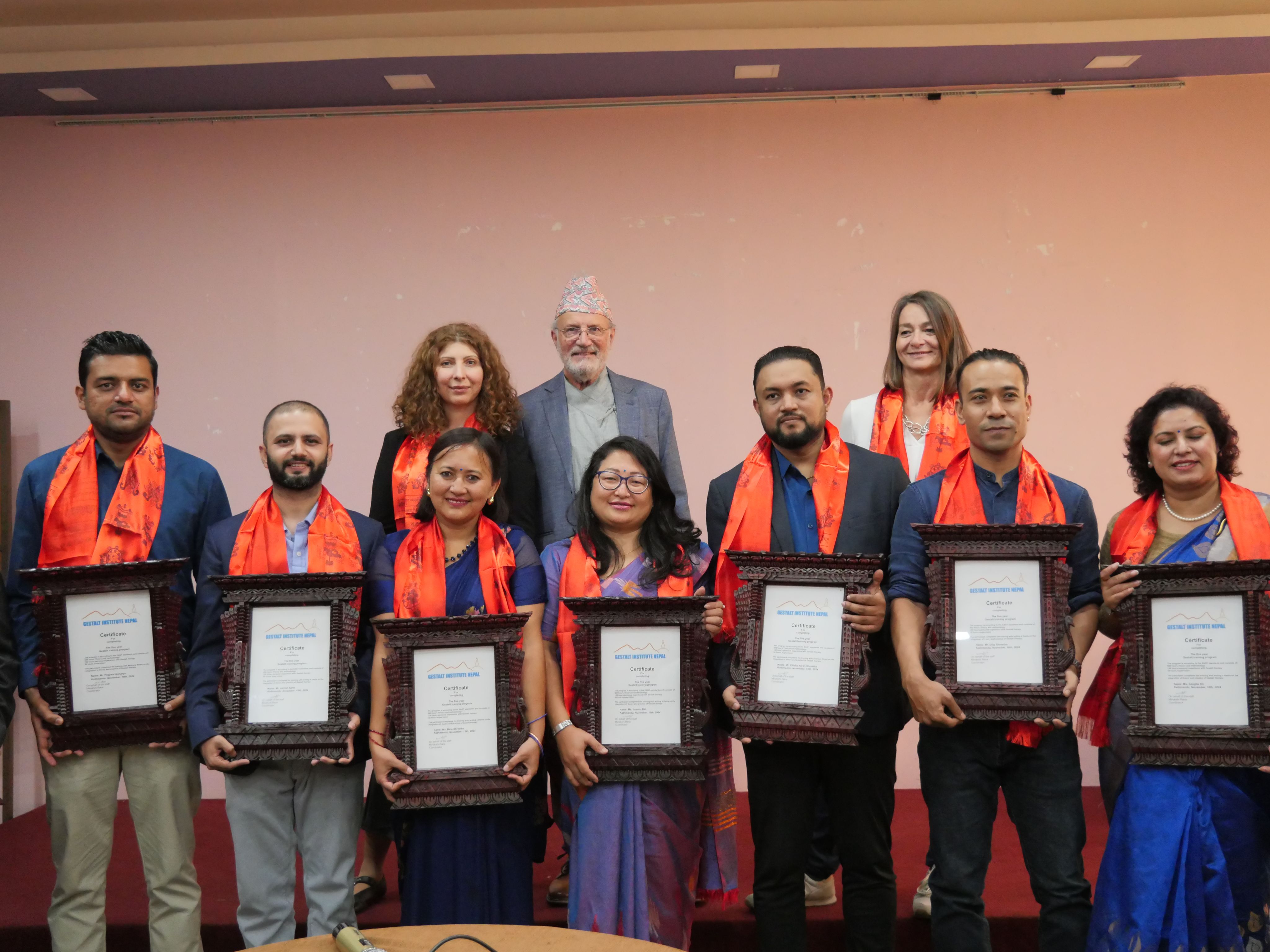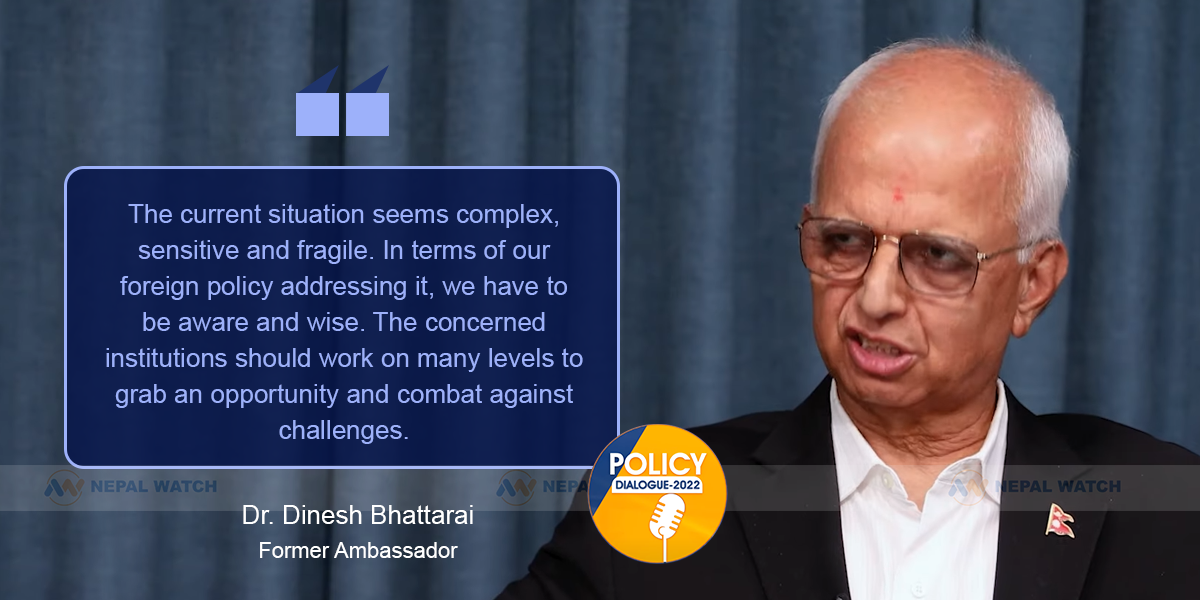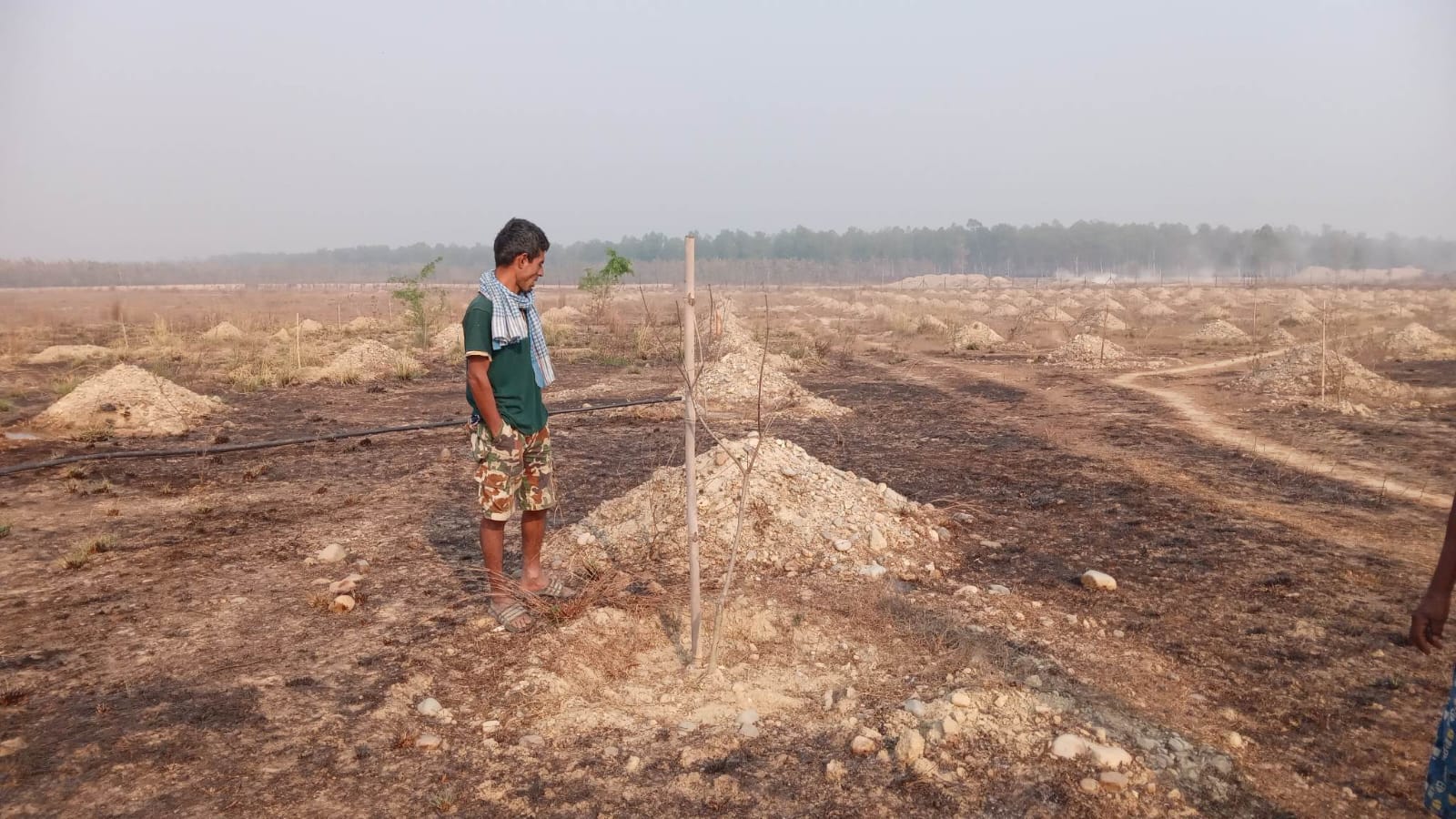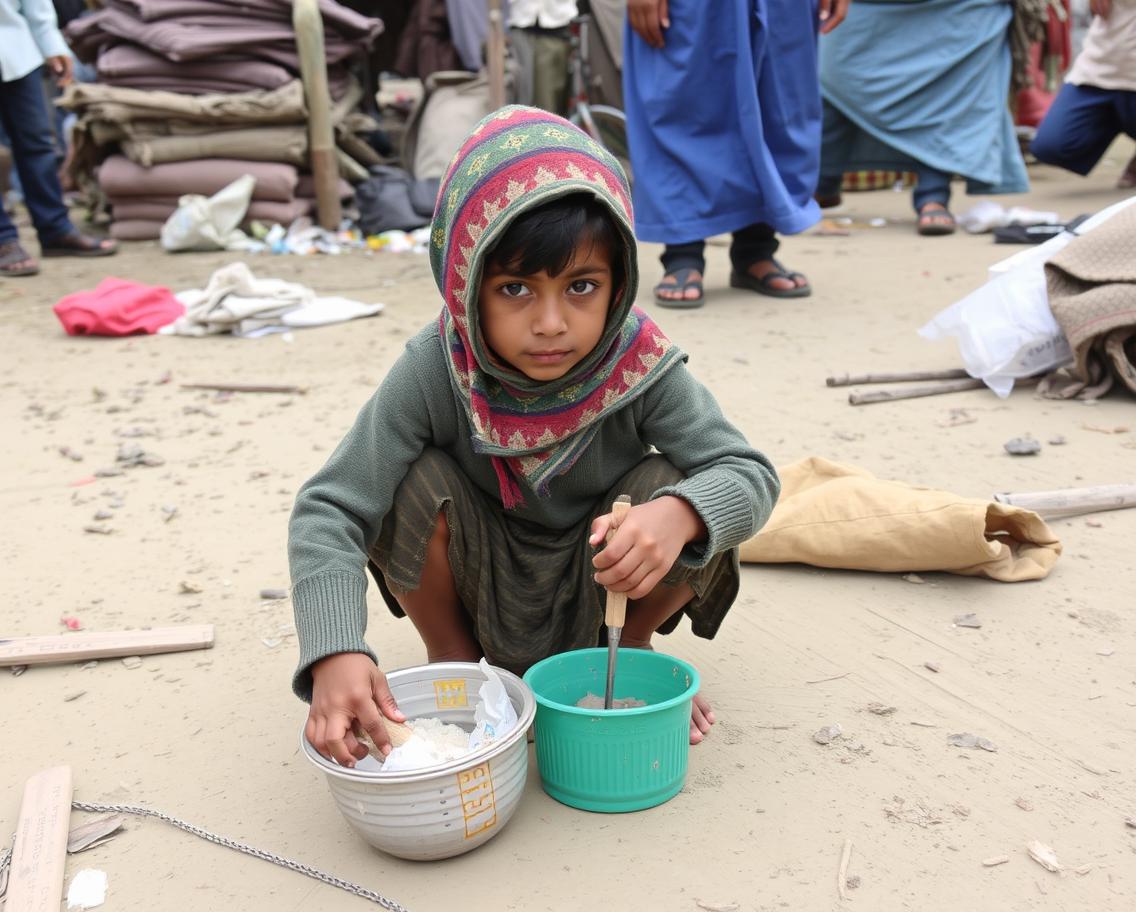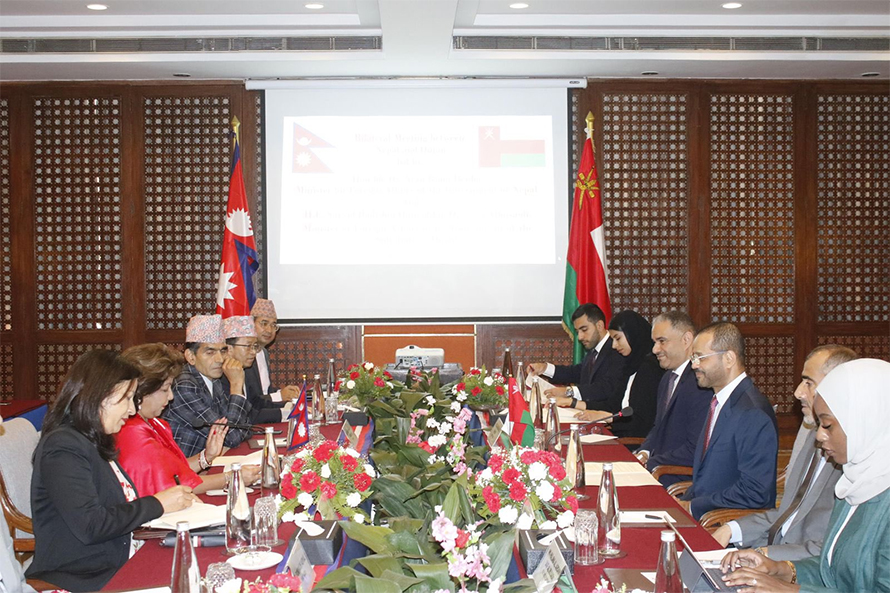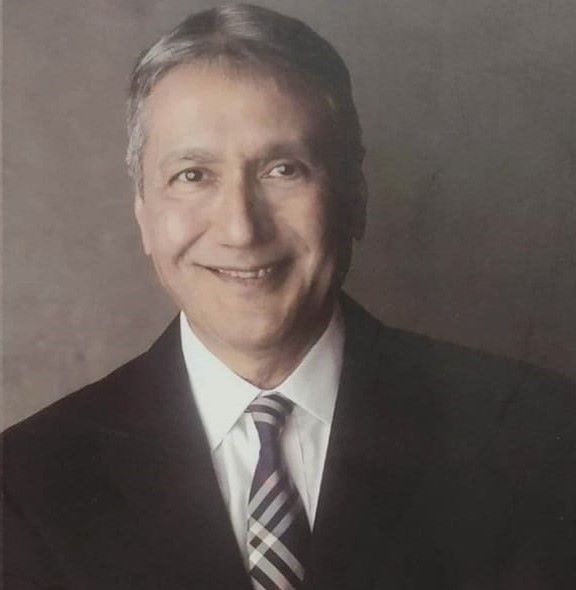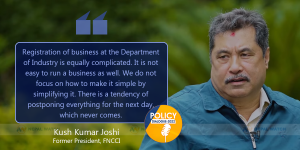Gender discrimination within parliament exists; inclusiveness will only lead to smooth development
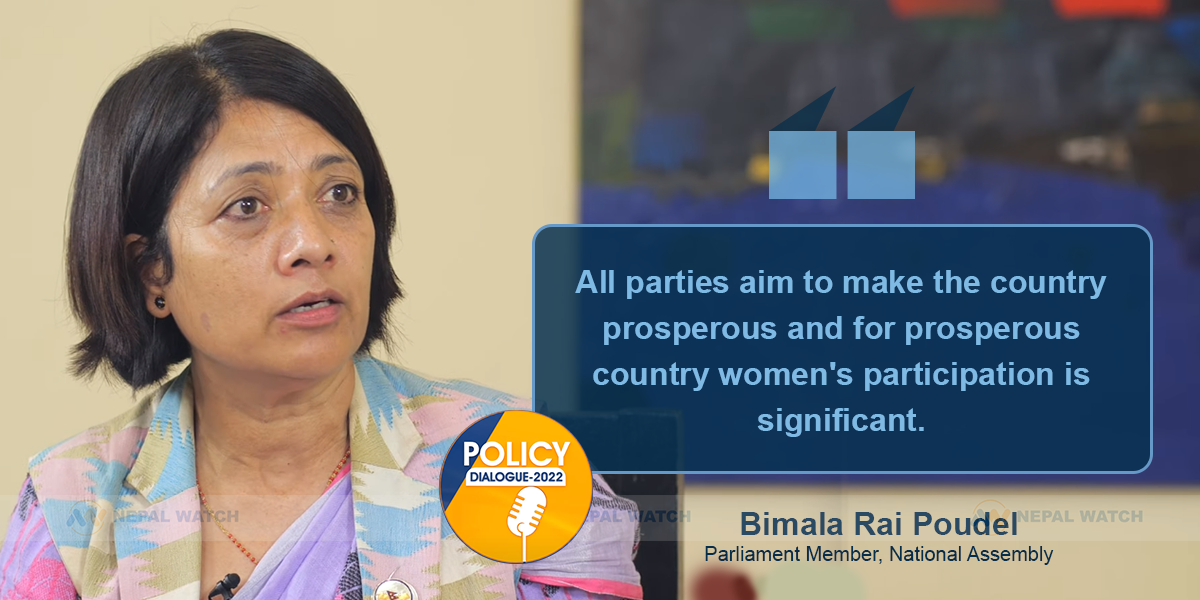
Kathmandu. We have been saying that 51 percent of the total population of the country is occupied by women. There are a total of 8.8 million women voters in Nepal for the House of Representatives and provincial assembly election to be held on November 20. This is 49 percent of the total population. The interesting part is that while there are 2,412 male candidacies, the number of female candidacies here is only 225 which is only 9 percent of the total candidacy.
As 51 percent of the population in Nepal are women, laws are needed to address their daily needs. To draft the laws, concerns about women should be significantly raised in parliament. And, to raise those questions representation of women is essential.
The main reason for the lack of women’s presence in the elections is that we are not able to explain the need for gender equality while drafting the laws.
We believe that men’s and women’s perspectives, their efficiency, their influence, etc. are different from every perspective. Therefore, laws that are drafted by considering both men and women equal are relevant and relative.
Equal representation of women in Parliament is a matter of benefit for the party and the entire country. This is because all parties aim to make the country prosperous and for prosperous country women’s participation is significant. This is what we could not explain to leaders and make them understand. As a result, tickets are given to those who have power. Some women have been working hard to get tickets for the upcoming elections however they could not.
The constitution of Nepal states that 33 percent of women’s participation is a must in parliament. The parties should understand why women’s representation is necessary. But the parties themselves are indulging in ticket cartelization. This is why only a few women received tickets in this elections, which is a vivid example of this.
As soon as there are fewer female candidates for first-past-the-post (FPTP) seats, its direct effect will be on the proportional seat. Because, to fulfill this gap, 100 percent of women should come proportionally.
The proportional election system is aimed at bringing the undermined classes to mainstream politics since these groups of people are familiar with their issues and problems at their level. Those candidates who do not want to follow any party and don’t want to compete in the election are also given entry into the parliament through a proportional representation system. On one hand, it has attacked the essence of the proportional system, on the other hand, there is a danger of sending the wrong message that the proportional system is only for women and those with good access. This is very sad.
We have seen the need to bring only women representatives in such a beautiful proportionate election system to fulfill the legal requirement. By fulfilling the purpose of the provisions of the constitution, the negative message is being circulated among the people. Regrettably, the definition of the proportional system itself is negative.
Regardless of this chaotic situation, voters have also given a positive example that women candidates should be supported. Let’s look at the local-level elections. In the Election Act, there is a provision that one of the positions either of the president or deputy president of the local level should be represented by women. But this time, in the name of the alliance, in many places both the president and the vice president of the local level were male candidates. But in some places, women representatives were voted regardless of the alliance. This can be understood that the voters showed benevolence towards the female candidates.
The women’s movement has not been able to make an impact within the party. The reason for this is not that the contribution of women in the party is less but because of man dominance. However, nowadays awareness level is gradually rising. There are more and more people questioning whether there are women in the party’s central committee and standing committee.
Elections have become expensive. A situation has arisen where money is needed along with the strength to win direct elections. After becoming a candidate in the election, time and resources are significant. Women have to finish all the work inside the house and work outside like male candidates. As easy as it is for a man who goes outside to build a political system, it is equally difficult for a woman who stays at home and builds an organization.
In this election, 9 percent of female candidates contended direct elections. There is a fear that the party will not reach the 33 percent representation guaranteed by the constitution as the party has selected fewer women candidates.
There are many good examples done by women representatives in Parliament. Based on my experience of being there for the last four years, men raise most of the political questions. They spent most of their time questioning others rather than giving constructive feedback. But the questions raised by women are different. They are based on people’s livelihood.
We also studied who raised qualitative questions in the parliament and in which amount. MPs do three types of work. One of them is to make laws. Within that, a group of MPs works in amending laws. Both men and women are equally involved in amending laws.
In the amendments made by many women, it was found that women’s daily needs, inclusiveness, participation, justice, etc. were given importance. Women parliamentarians have an extremely important role to play in making gender-friendly laws.
Likewise, when we speak in parliament at zero hours, if we look at the videotape, the issues raised by women and men are rather different. Men are raising party-centric questions, while women are raising issues about daily livelihood. Women are speaking for the people keeping the party aside. But men’s style is different because they are more party-centric.
Not all women MPs come to the parliament by reading and understanding. This also applies to men. Ability is something that can be developed after an opportunity. There are also capacity-building activities for such MPs within the Parliament Secretariat. Conducting capacity-building programs and other training is also the responsibility of the parties.
The party which has selected them as MPs should have invested in them in capacity development programs. It is also the party’s responsibility to prepare MPs for their new roles. But the party is not fulfilling this responsibility. Individually, MPs themselves are making a lot of efforts to increase their capacity.
Apart from that, significant work has been done by parliament secretariats and donors to improve the capacity of MPs. The women MPs who initially hesitated to even mention their names when they entered the parliament have become bold enough to make a substantial contribution to law-making in three to four years. Likewise, they can also raise the issue of people’s livelihood and develop the courage to fight for first-past-the-post-election.
Therefore, women’s participation in parliament should not be based solely on ability. Opportunity increases the ability.
There are various forms of discrimination in Parliament. If a busy leader speaks regarding the amendment of law without significant study, that work will proceed. His suggestions are acknowledged. But in that place, no matter how hard the women read the law, study the annual plan/budget and make suggestions, no one listens to them. Such differences exist within the parliament.
There is also a difference between women and men when it comes to being allowed to speak in parliament. Leaders of major parties are given 20/25 minutes just to insult the other parties. Whereas, women MPs of the party who are at the lower level are not given more than 3 to 5 minutes to speak.
MPs who hold positions do not have time to speak about development. Parliamentarians like us who have free time are given very little time to speak. It needs to be corrected.
Parliamentarians have a certain time allocated to drafting the country’s policy and program, planning, and budgeting process, this is the time to make the annual program. During that period, the parliamentarians give suggestions to the government and the government brings its programs through the Planning Commission. During the drafting process, the MPs give more and more suggestions to the government. Discussion before the budget is called ‘pre-budget discussion’. In that discussion, various suggestions for improvement are taken from MPs. However, the budget will be prepared without the knowledge of the MP whether the feedback has been incorporated.
We have such a system that nothing can be changed e.g., full stop, comma, etc. in the budget that has been passed. If anything changes, even the government can collapse. Even a typo error cannot be changed, as such a legal system cannot be changed. Hence, many important suggestions given by the parliamentarians are not included in the program.
In the budget, we should have been able to change everything other than tax rates. However, the current structure does not allow us to do that. Due to this, there are many suggestions in the discussion of the annual budget and program. However, those suggestions are not accommodated due to the fear that the government might collapse soon as suggestions are implemented.
On the other hand, there is a discussion about achieving sustainable development in the parliamentary committee (also known as ‘mini parliament’). I sat on the Sustainable Development and Good Governance Committee for two years.
Whenever we raised the issue of sustainable development, the parliamentarians only understood sustainable development as the environment protection.
Once we realize that MPs understand sustainable development as planting flowers and protecting them, we started making them understand. Furthermore, MPs also discussed how to improve the law with the goal of sustainable development while doing their work. After much discussion in the committee, we prepared a ‘checklist’.
We have made a book in collaboration with the Planning Commission on how to understand the law from the perspective of sustainable development goals. Because this issue should be understood not only by the members of the Sustainable Development Committee but also by the members of the House of Representatives and the National Assembly. We also published it intending to reach all MPs.
However, there is doubt whether MPs can make laws from the sustainable development point of view. Because we are still more focused on politics rather than development.
The key argument is that women candidates will not win the election without the party’s investment. Parliament does not become inclusive unless women candidates win. Unless the parliament becomes inclusive, no matter how many development plans are put forward, they will not be successful.
In my experience MPs do not have an in-depth understanding of several issues and the government seems reluctant to support them. Secondly, there is also a mistake in the process of drafting our laws. Before drafting the law, the relevant ministries should do their homework, the needs of the stakeholders should be considered and a law should be drafted accordingly. But here the law is drafted depending on the advice of an advisor/consultant staying in the room. It is also heard that the ministry brings a draft of the law through a consultant and amends it.
Before drafting laws, there is no discussion with the concerned stakeholders. When that law comes to the parliament for discussion, the public naturally believe that their concerns will be addressed through the MP. This is how several laws are drafted. Hence, there are many cases where we have to re-draft them. However, re-drafting is not always possible.
Many things become clear if prior homework is done before drafting the laws. If not, the parliament will try to do its best. But even after discussion with the stakeholders, there is also a difference in the extent to which the government implements that law. If the law is not implemented after the parliament passed it, the people also lose faith in the parliamentarians.
Law enforcement issues are often raised by MPs in the House. The government has a long list of answers to those questions. It has been heard that the secretary changed up to three times in 6 months. Likewise, the issue of political instability and change in government is also affecting the implementation of such laws.
Therefore, laws should be introduced only after much discussion. There should be radical reforms in the process of making laws and implementing programs, budgets, and projects. Politics is the only way to improve this.
We have been giving the slogan of social and economic transformation in the country. The reformation should start from the party itself, not from others. The people should carefully observe what the parties do while in government and outside. The people should question whether the parties have done their job. Only then can he build a country.
(The views are expressed by National Assembly MP Bimala Rai Paudel in the discussion held at the Policy Dialogue 2022. The discussion was about the reasons why women’s participation is not as much as expected in upcoming elections (on November 20) and its impact on the country’s economic and social situation. This program is broadcast on Nepal Television every Wednesday at 8:45 PM by Nepalwatch’s Television presentation.
Trending
Related News
Latest
-

Riddara RD6 EV Pick Up Launches Exchange Offer In Nepal
-

Shop More, Save More with Daraz Nepal’s 5.5 Best Price, Best Deals
-

Unveiling the Galaxy S25 Ultra 1TB: Samsung’s Tera-fic New Flagship Variant Kicks Off the New Year with Unprecedented Storage Power
-

UK announces £10 million for Myanmar quake relief
-

World Bank Approves financing package of 150 Million USD to Nepal



